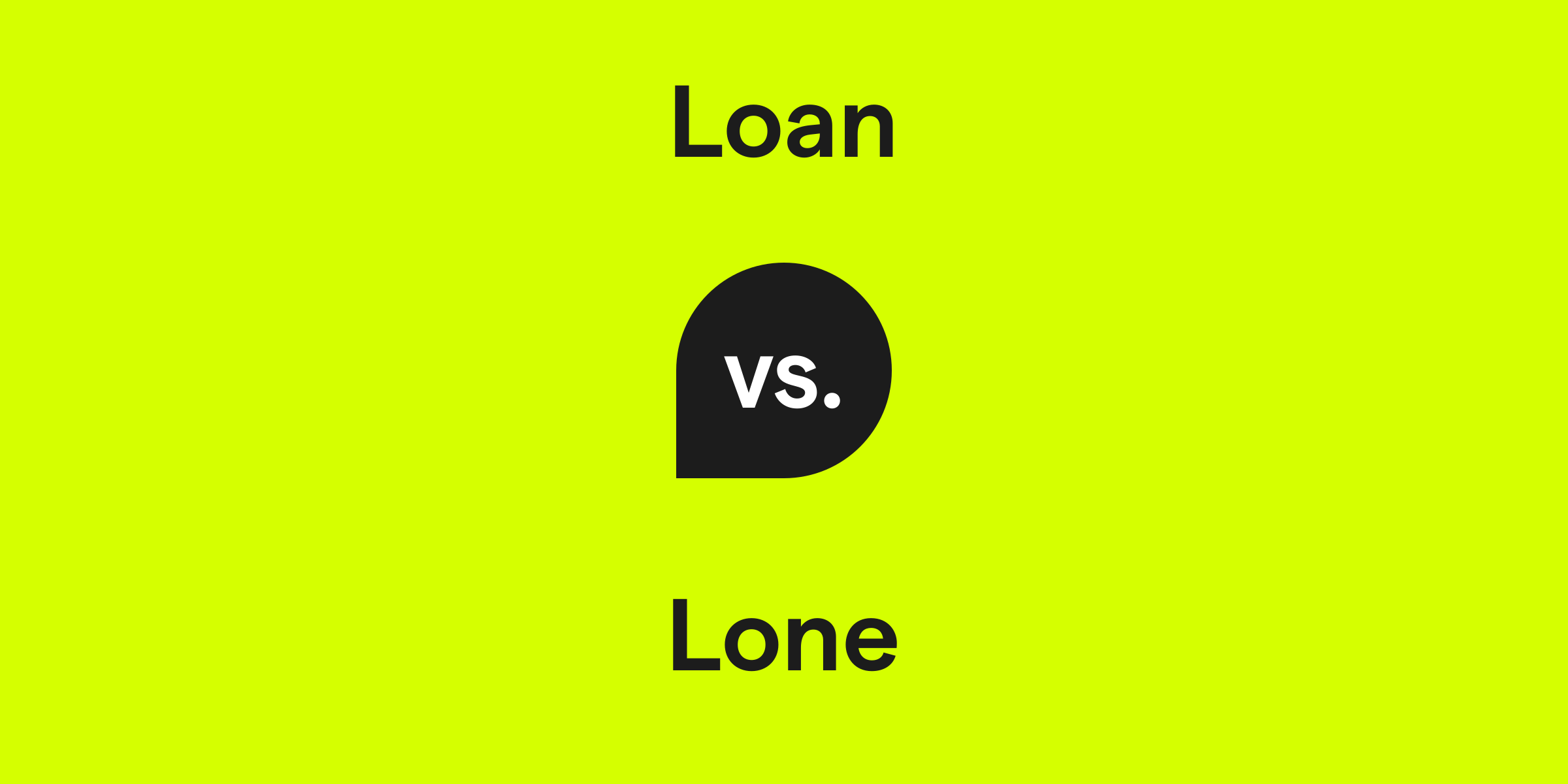Loan vs. Lone: What's the Difference?
Loan and lone are two distinct terms commonly mistaken due to their similar spelling. A loan is a noun that refers to money, property, or other material goods lent to a party in exchange for future repayment of the loan value or principal amount. On the other hand, lone is an adjective describing someone or something that is without company, solitary or isolated.

How do you use the word loan in a sentence?
The word loan is primarily used in financial contexts to describe the action of borrowing or the sum borrowed. It can function as a noun, referring to the borrowed amount itself, or as a verb, signifying the act of lending.
Examples of loan in a sentence
- I secured a loan to help finance my education.
- The library offered a book loan service to the community.
- Can you loan me a pen?
How do you use the word lone in a sentence?
The word lone is used as an adjective to describe something that is solitary, single, or functioning without others. It often implies a sense of isolation, whether by choice or circumstance.
Examples of lone in a sentence
- The lone wolf roamed the forest in search of a new pack.
- She took a long walk as the lone beachgoer on the shore.
- A lone tree stood guard over the abandoned landscape.
Loan and lone definition, parts of speech, and pronunciation
Loan definition:
A loan is a sum of money that is expected to be paid back with interest. It can also refer to the act of lending a sum of money under the agreement that it will be returned, usually with an additional charge for its use.
Loan parts of speech:
Loan pronunciation:
Loan is pronounced as /loʊn/, rhyming with 'bone' and 'cone.'
Lone definition:
Lone describes something that is by itself, solitary, or not accompanied by others. It can suggest an absence of assistance, companionship, or support.
Lone parts of speech:
Lone pronunciation:
Lone is pronounced as /loʊn/, with a long 'o' sound similar to 'bone' and 'cone', yet distinct from loan only by its ending sound.
A loan is a sum of money that is expected to be paid back with interest. It can also refer to the act of lending a sum of money under the agreement that it will be returned, usually with an additional charge for its use.
Loan parts of speech:
- As a noun: 'The bank approved the loan for their new home.'
- As a verb: 'She decided to loan her friend the money for the car downpayment.'
Loan pronunciation:
Loan is pronounced as /loʊn/, rhyming with 'bone' and 'cone.'
Lone definition:
Lone describes something that is by itself, solitary, or not accompanied by others. It can suggest an absence of assistance, companionship, or support.
Lone parts of speech:
- As an adjective: 'The artist preferred to work as a lone creative force, independent from studios.'
Lone pronunciation:
Lone is pronounced as /loʊn/, with a long 'o' sound similar to 'bone' and 'cone', yet distinct from loan only by its ending sound.
Loan vs. Lone in a nutshell
Loan refers to a sum of money or an item lent, with the intention of future repayment, whereas lone is an adjective delineating something solitary or without companionship. Loan can be both a noun and a verb, while lone can only be an adjective. Their pronunciations are nearly identical, with the final sound distinguishing the two: /loʊn/ for lone and /loʊn/ for 'loan.' Mastering their usage strengthens clarity in writing and speech.
Get AI Writing Assistance Wherever You Type
Make sure your vocabulary is on point and every punctuation mark is in the right place, no matter where you’re working. Grammarly works across more than 1 million websites and apps so you can improve your writing without copying, pasting, or breaking focus.

More Commonly Confused Words
Interest piqued? Pore (not pour) over other commonly confused words to help your writing reach peak (not peek) performance.